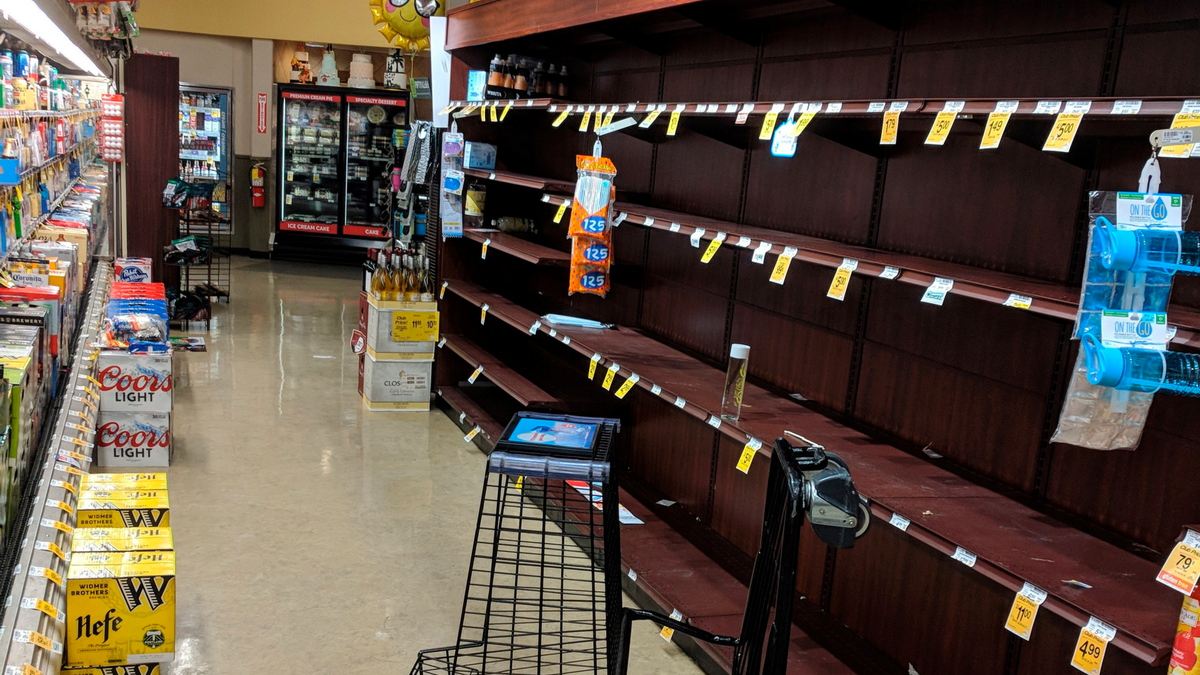
SALEM, Ore. – Oregon's emergency alert systems blasted a cryptic alert to cellphones around the capital city, panicking residents by telling them simply "Civil Emergency" and "Prepare for Action" and leaving off that the threat was toxic algae at a local water supply.
Officials wanted to warn Salem-area residents Tuesday night that elevated levels of a natural toxin caused by the algae bloom had made area tap water unsafe for children and people with compromised immune systems. But that information got cut off, and a more ominous-sounding default message went out in its place, said Andrew Phelps, head of the state emergency management agency.
Officials sent a second message 31 minutes later with more information and a link to a municipal website.
Within hours of the first alert, residents stripped the aisles at one supermarket in the city's downtown center of bottled water, and a shopping cart lay tipped on its side in front of the empty shelves. Workers brought out a pallet of sparkling water, which they placed at the front of the store, and told customers they hoped they'd get more regular water in the morning.
The incident marked a high-profile glitch in authorities' use of emergency alert systems, following a false alarm sent out by Hawaii officials in January warning of an incoming ballistic missile.
In Oregon, confusion surrounded the initial alert even within the emergency management agency, with an official telling reporters the message had caught them unaware and state police asking residents via a Facebook post not to call 911 about the alert.
And when officials directed residents to the city of Salem's municipal website for more information, the site briefly crashed under the load.
"The integrated public alert warning system inadvertently defaulted to a generic message," Phelps said in a video posted on social media by the Office of Emergency Management. "I apologize for the confusion and the anxiety this incomplete message has caused."
Phelps said the message had also been broadcast via local television stations.
Cole Mahaffey, a Salem resident, set down a case of bottled water Wednesday he was carrying down the sidewalk and described the uneasy feeling of seeing the first alert arrive on his phone, with an ominous warning but no other information.
"It almost made me not want to go outside," Mahaffey said, adding that the alert caught him at the gym, and that he had interrupted his exercise routine to ask staff at the front desk if they knew what it was about. "I didn't know if there was something going on in the area, or if there was a shooter, you just had no way of knowing."

